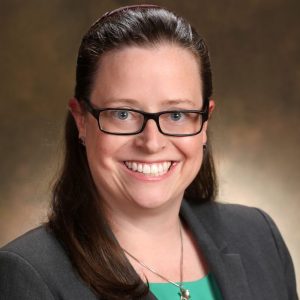At the end of this month, just before Rosh Hashanah, we will read one of my favorite passages in the Torah from Parashat Nitzavim:
Surely, this mitzvah which I enjoin upon you this day is not too baffling for you, nor is it beyond reach. It is not in the heavens, that you should say, “Who among us can go up to the heavens and get it for us and impart it to us, that we may observe it?” Neither is it beyond the sea… No, the thing is very close to you, in your mouth and in your heart, to observe it. – Deuteronomy 30:11-14
This passage serves as a kind of ancient mission statement for modern Jewish institutions. Just as God reassured the Israelites that “this mitzvah” is within their reach, our organizations strive to help people to create meaningful relationships with Judaism, God and the Jewish people. We want Judaism to be accessible.
In my mind, however, it is the last line of this excerpt from Deuteronomy that specifically speaks to the goal of Jewish education. As a Jewish educator, I want people of all ages to feel that Judaism is “in your heart” – that Judaism is a part of their core identity and that they feel deeply connected to the Jewish community. I also want people to have Judaism “in your mouth” – to feel comfortable and confident expressing their Judaism, and to feel that they have a right to wrestle and engage with their tradition.
Part of what draws me to these words is their sense of immediacy – the idea that Judaism is relevant right now. Sometimes, as a Jewish community, I worry that we can be overly focused on the past or the future and forget the importance of the present. For example, some people make the argument that we need to provide a strong Jewish education as a way of honoring and remembering the difficulties that our ancestors endured. At the same time, other people make the argument that we need to provide a strong Jewish education to ensure that that we will have a Jewish community in the future. Both arguments, though, are missing the “why.” Our ancestors were willing to experience hardships and persecution because they believed that Judaism gave value, purpose and meaning to their lives. Similarly, isn’t the very reason that we desire a Jewish community in the future because we believe that Judaism will enrich the lives of our descendants and help to make the world a better place?
If we apply this same thinking to our present time, it can energize and refocus our Jewish learning. We are not teaching our children so that they can be Jewish as adults. They are already Jewish! We should be teaching our children that Judaism can enrich their lives right now; that Judaism can bring them joy and comfort, community and belonging.
When our children experience their Jewish community as a safe place to be themselves in the present, we will also accomplish the goals addressing our past and our future. We will be honoring the past because we will see its lessons woven into our children’s beliefs and actions, and we will be building toward the future by helping children experience their Judaism as an integral part of who they are as they develop into adults.




